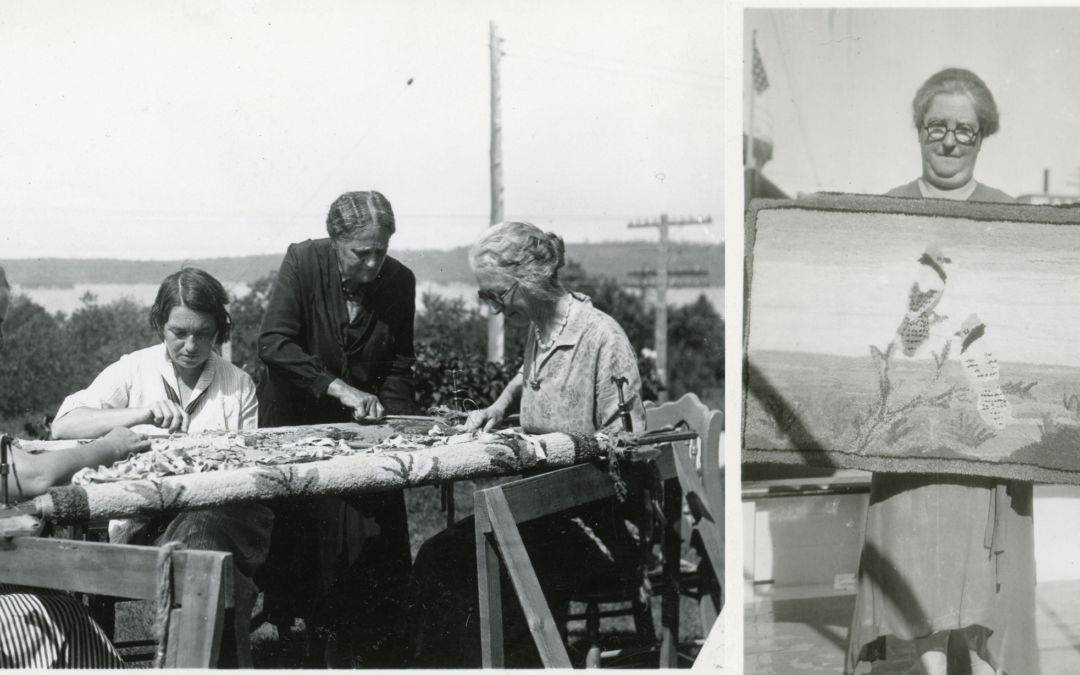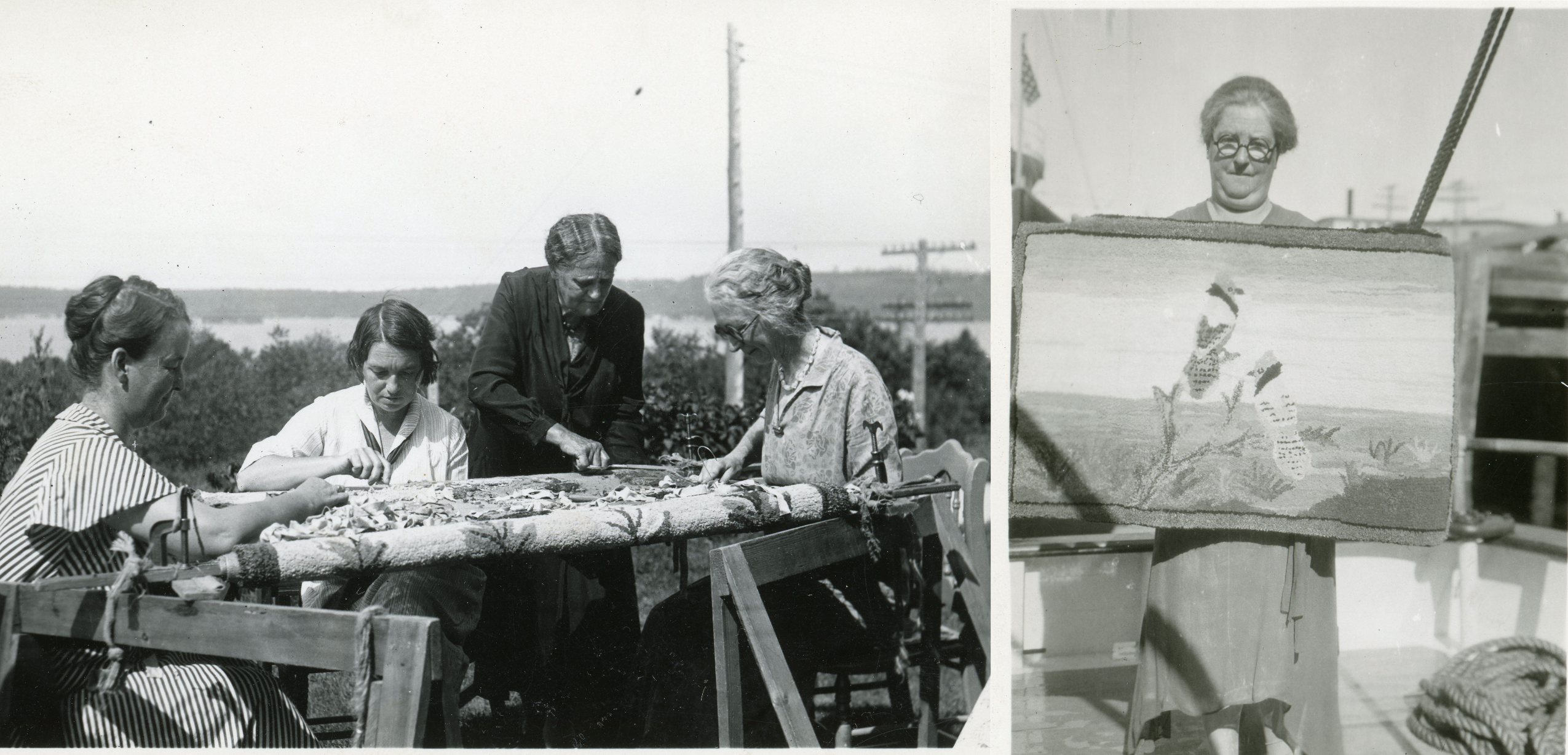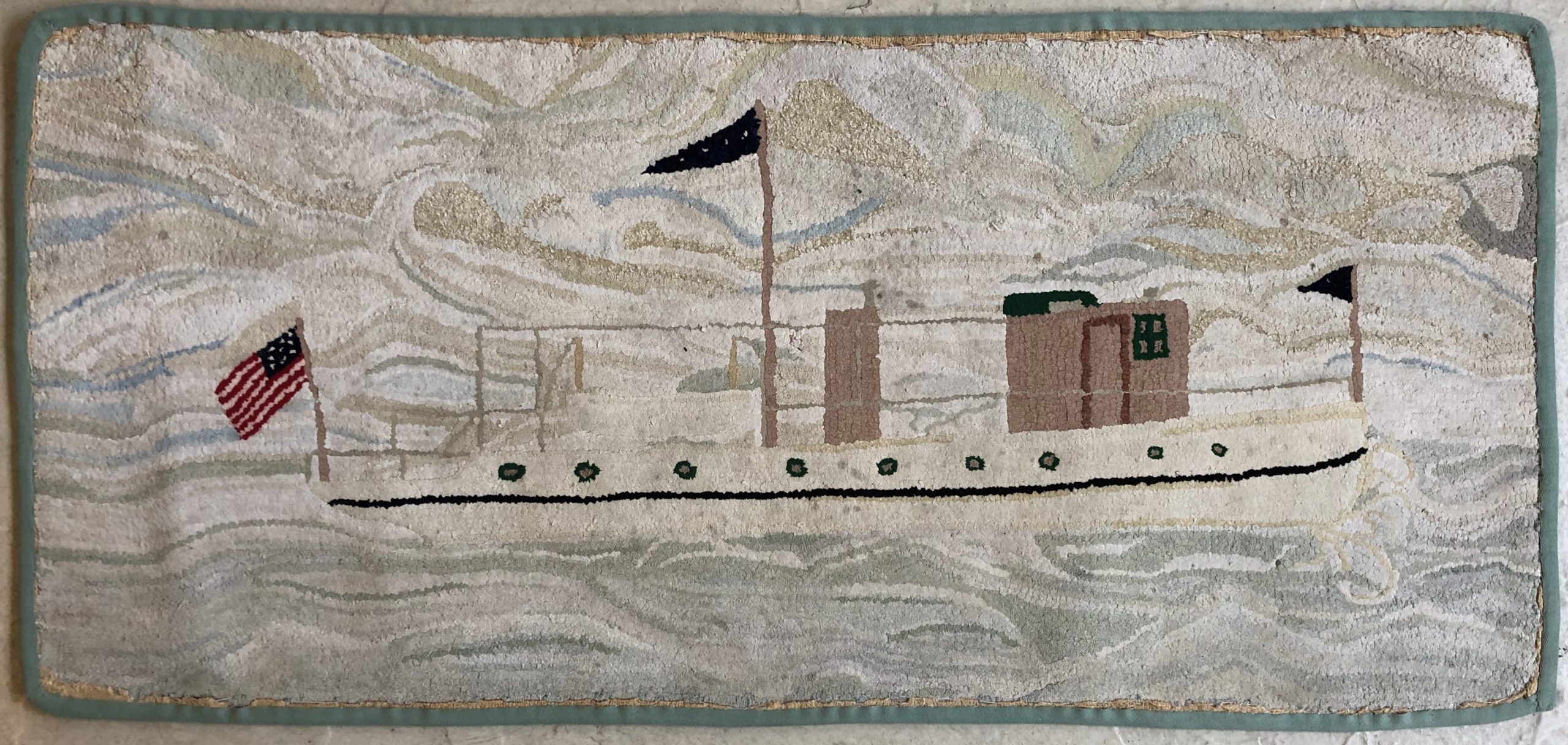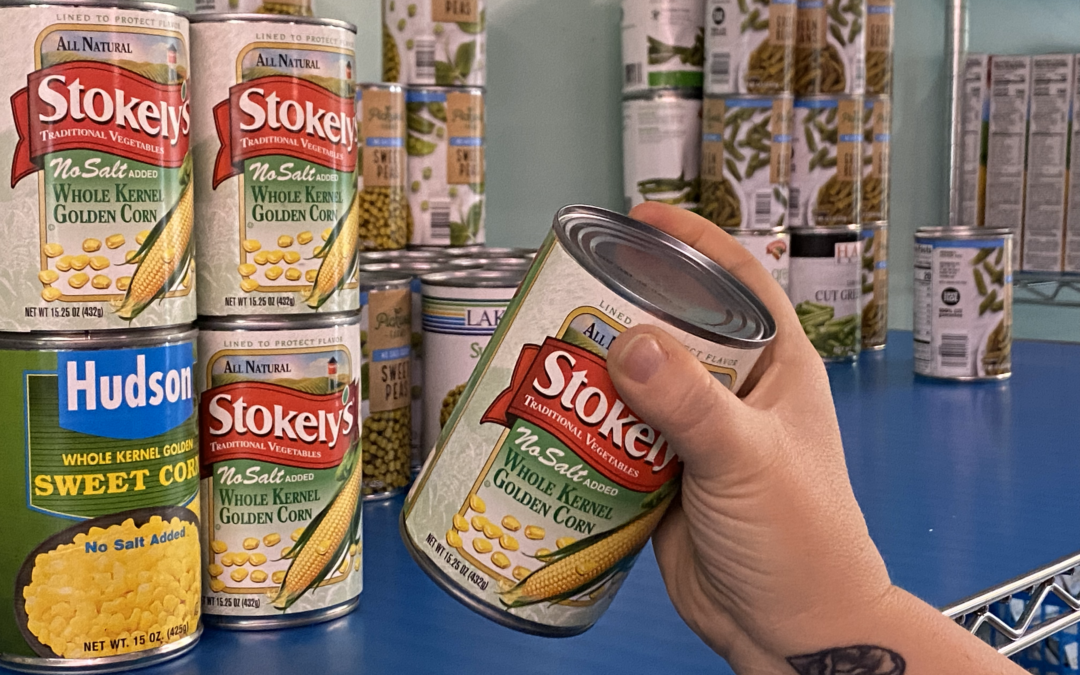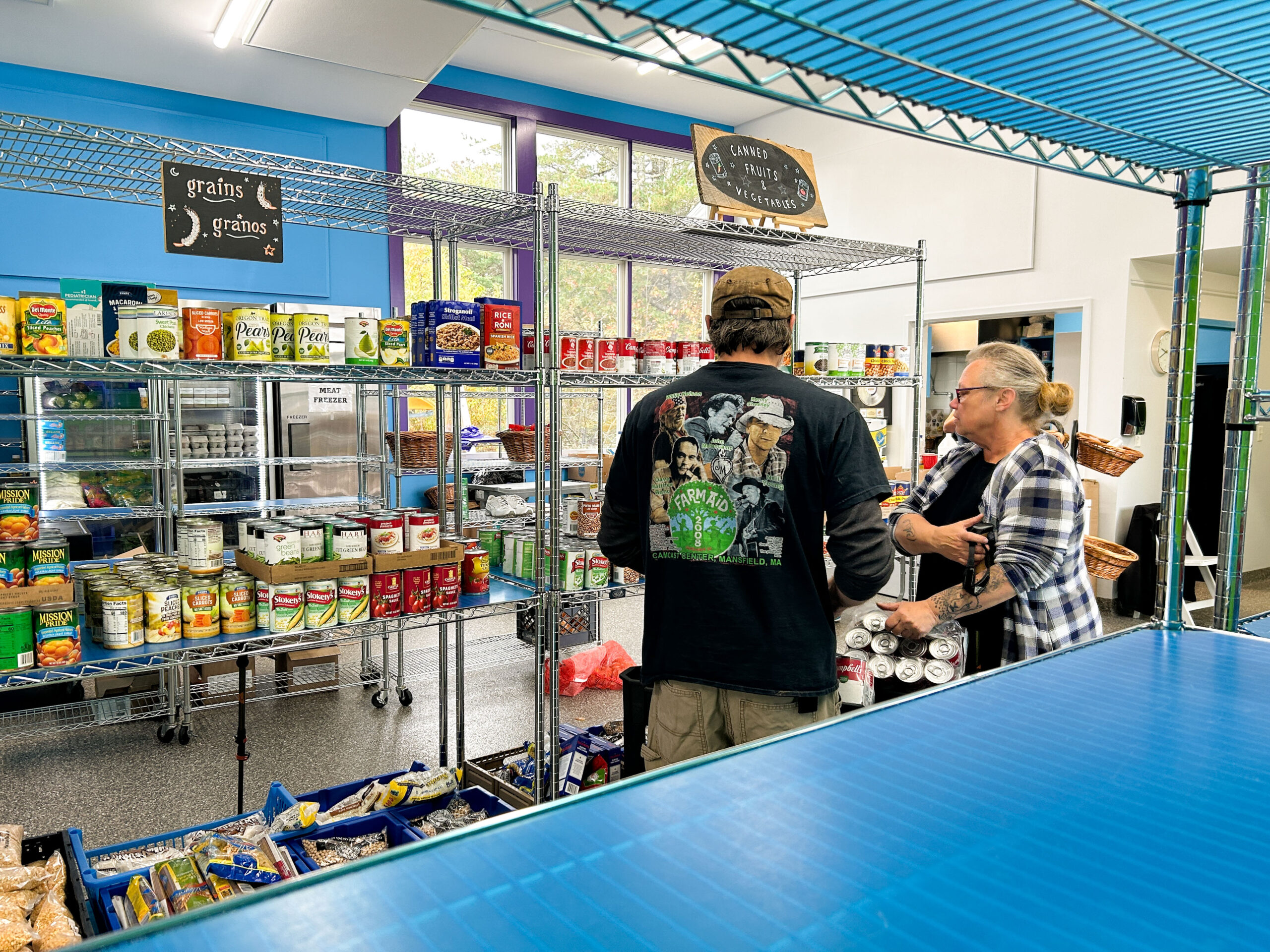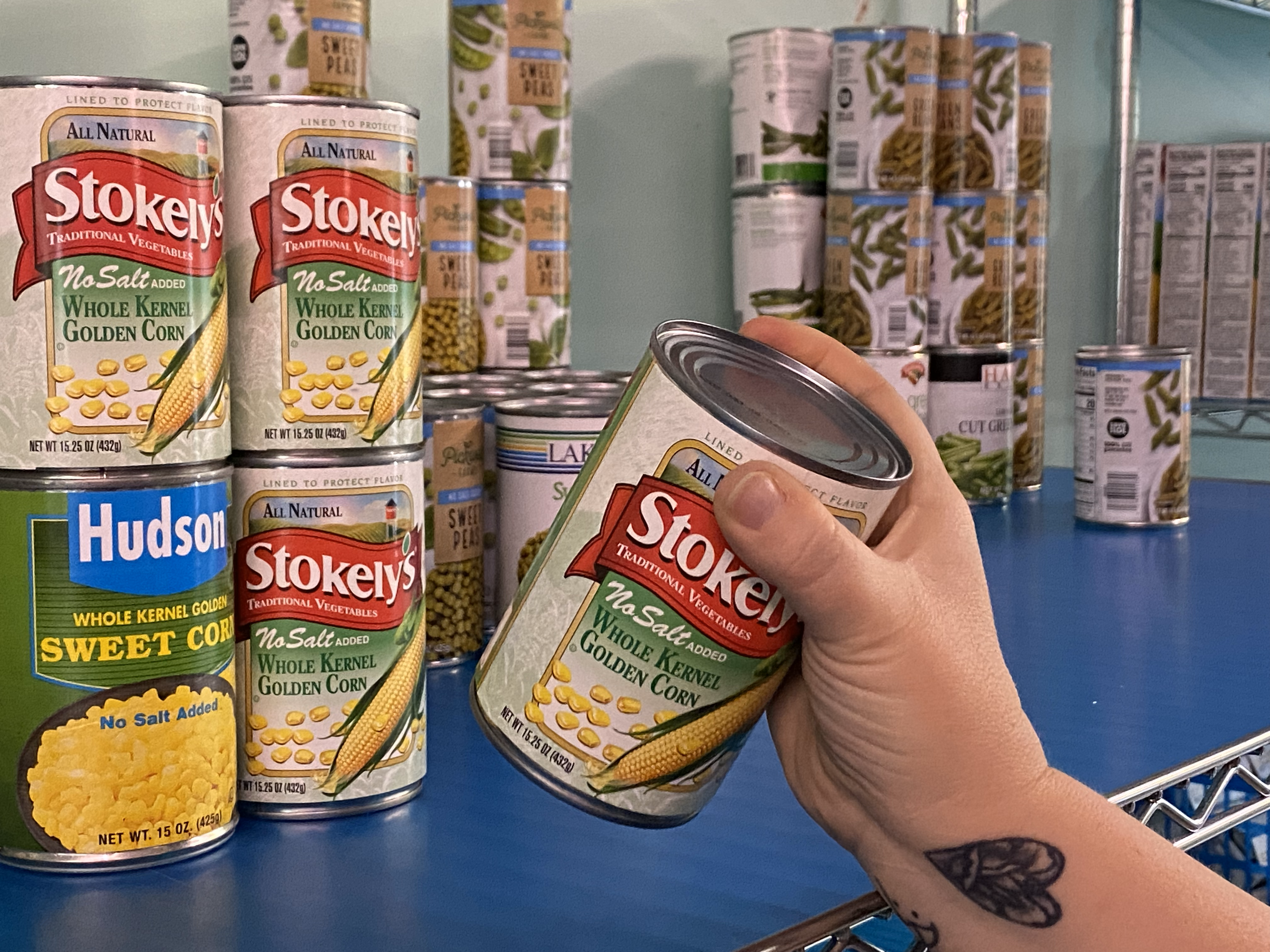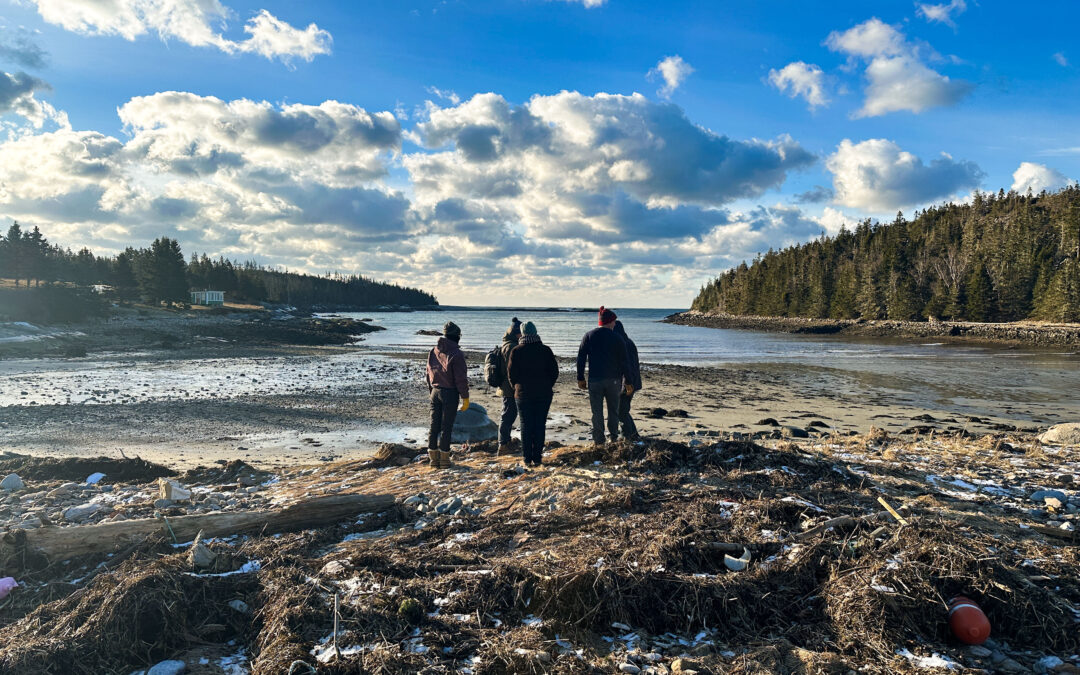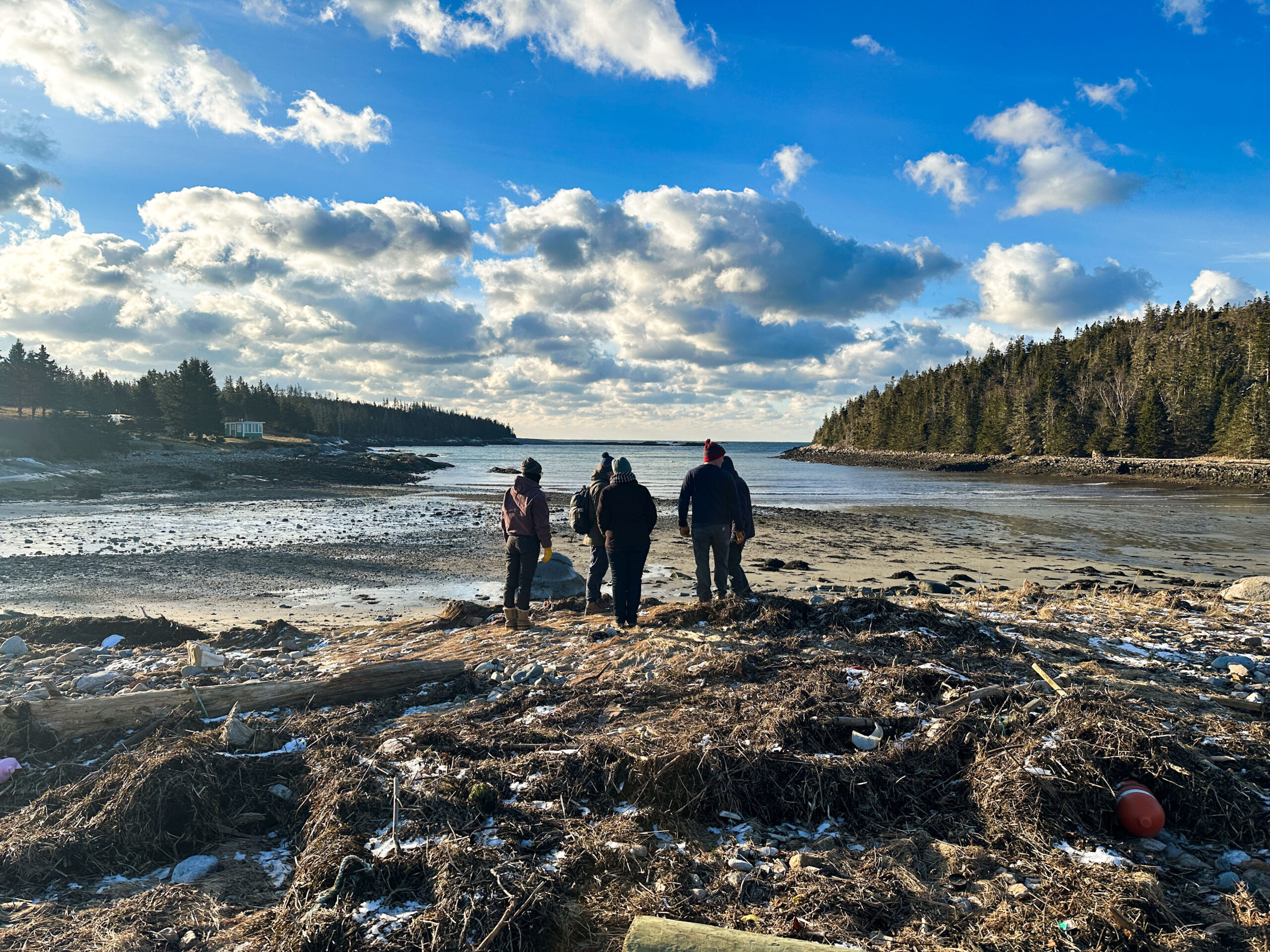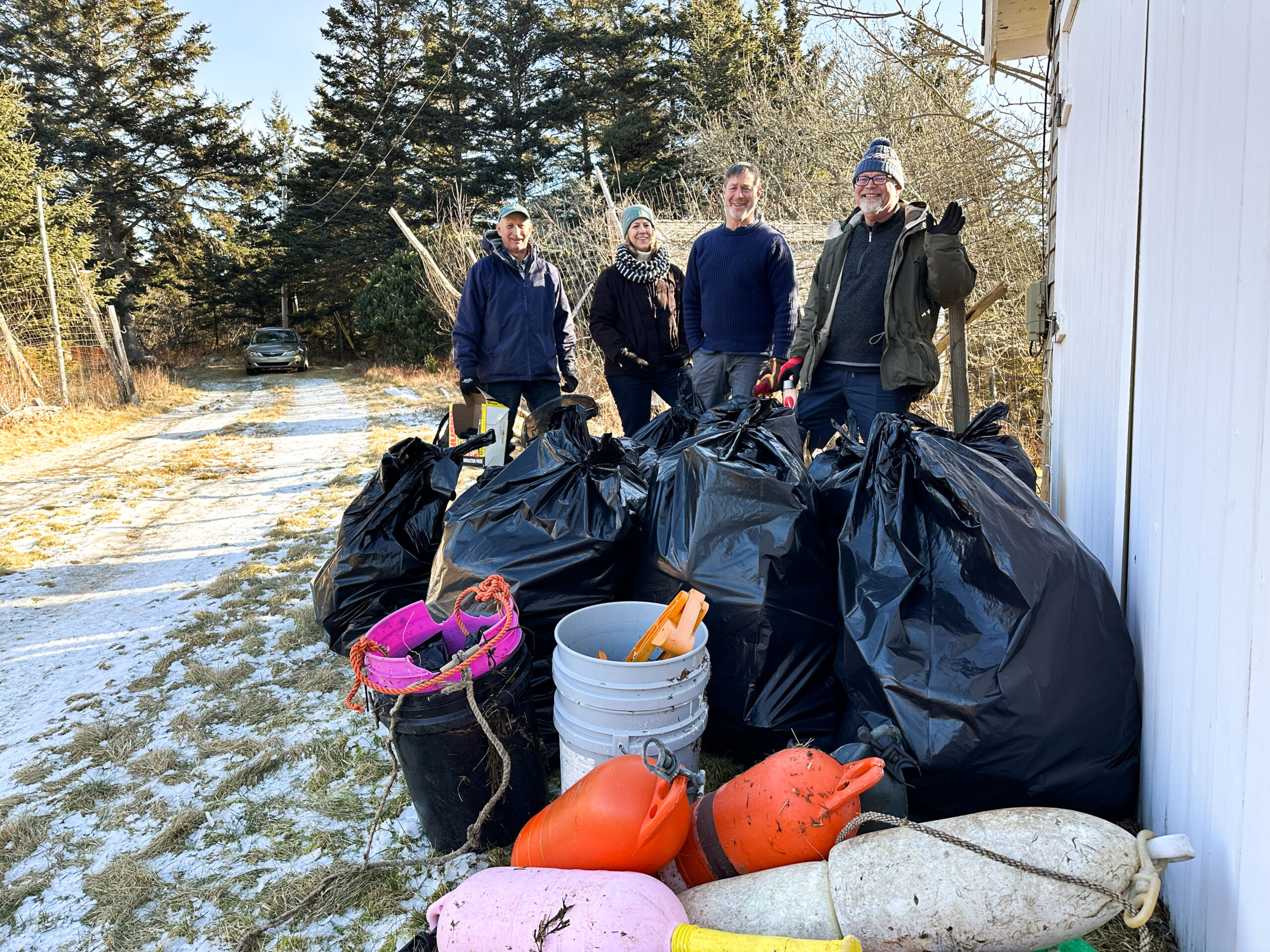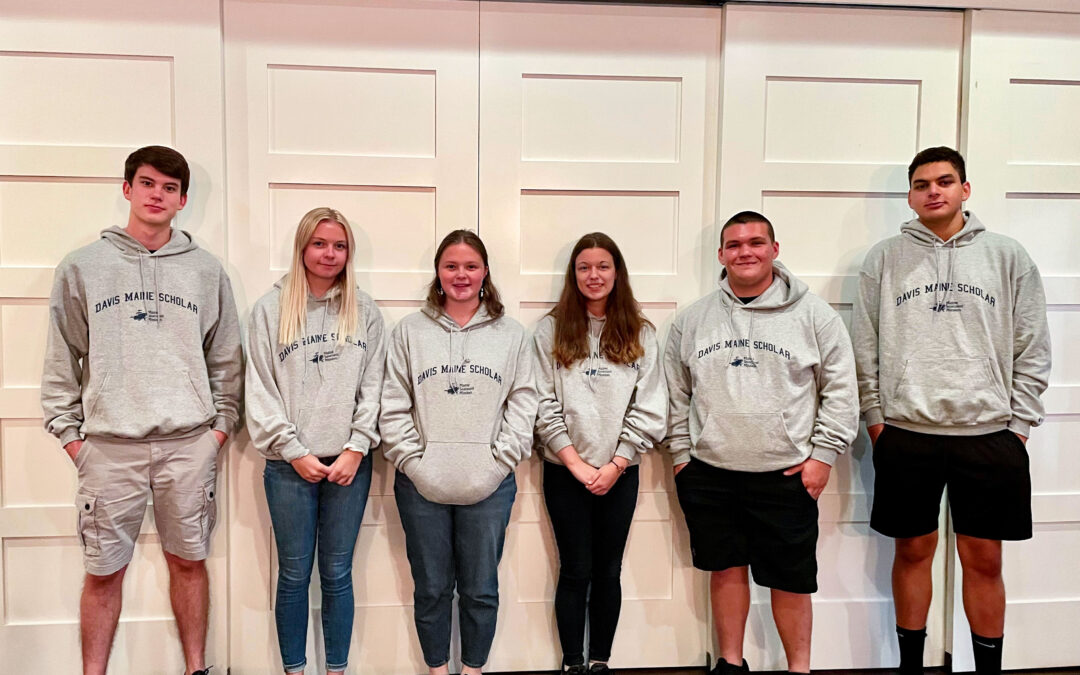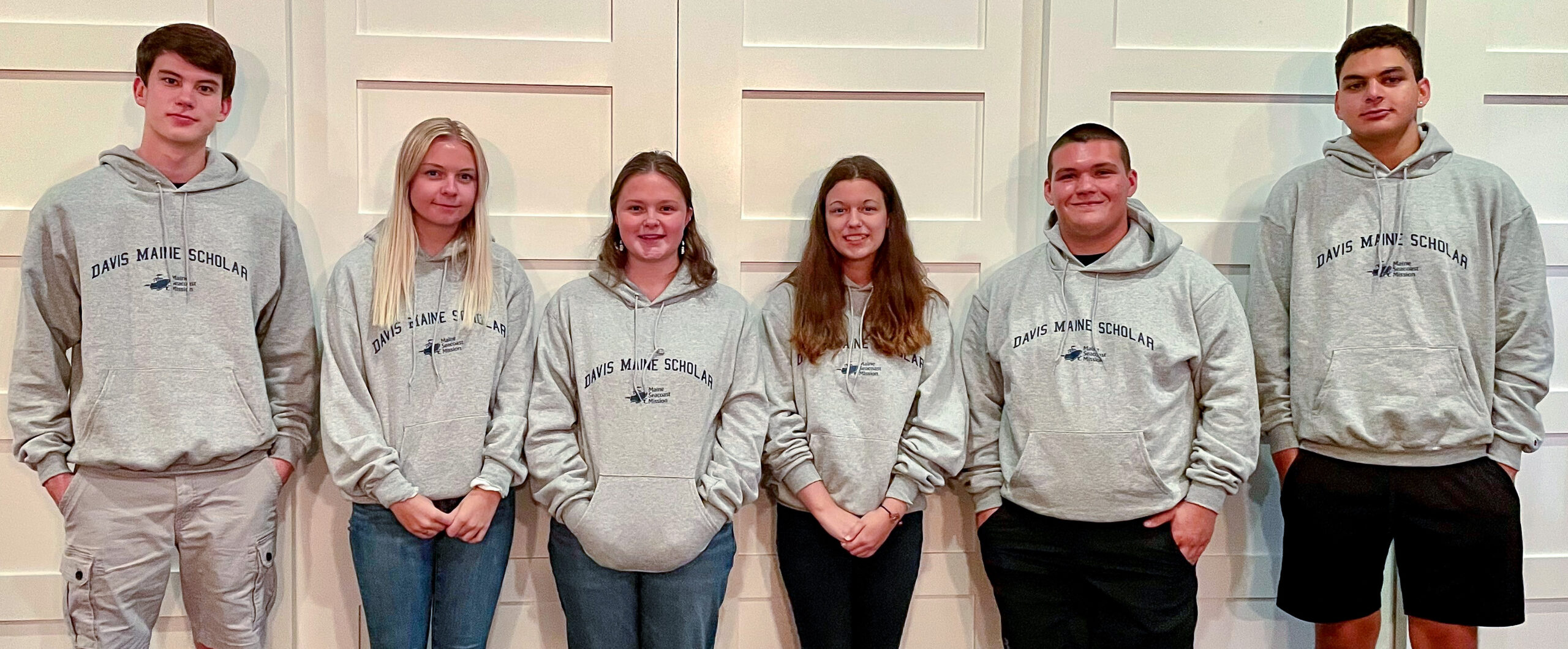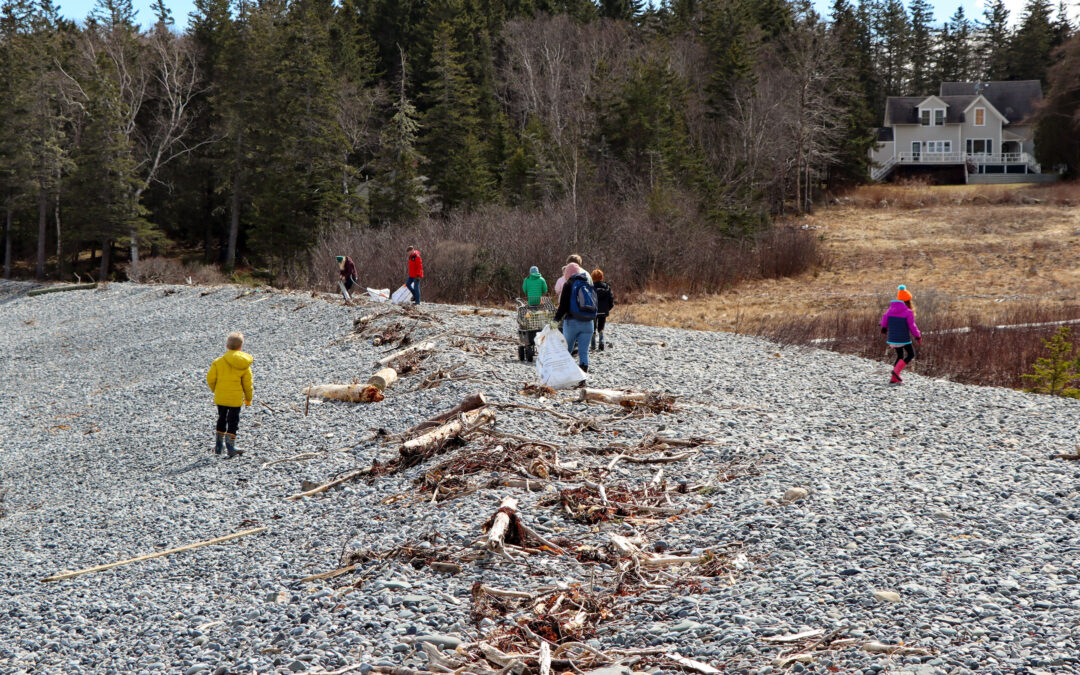
Volunteers Help Islands Recover from Winter Storms
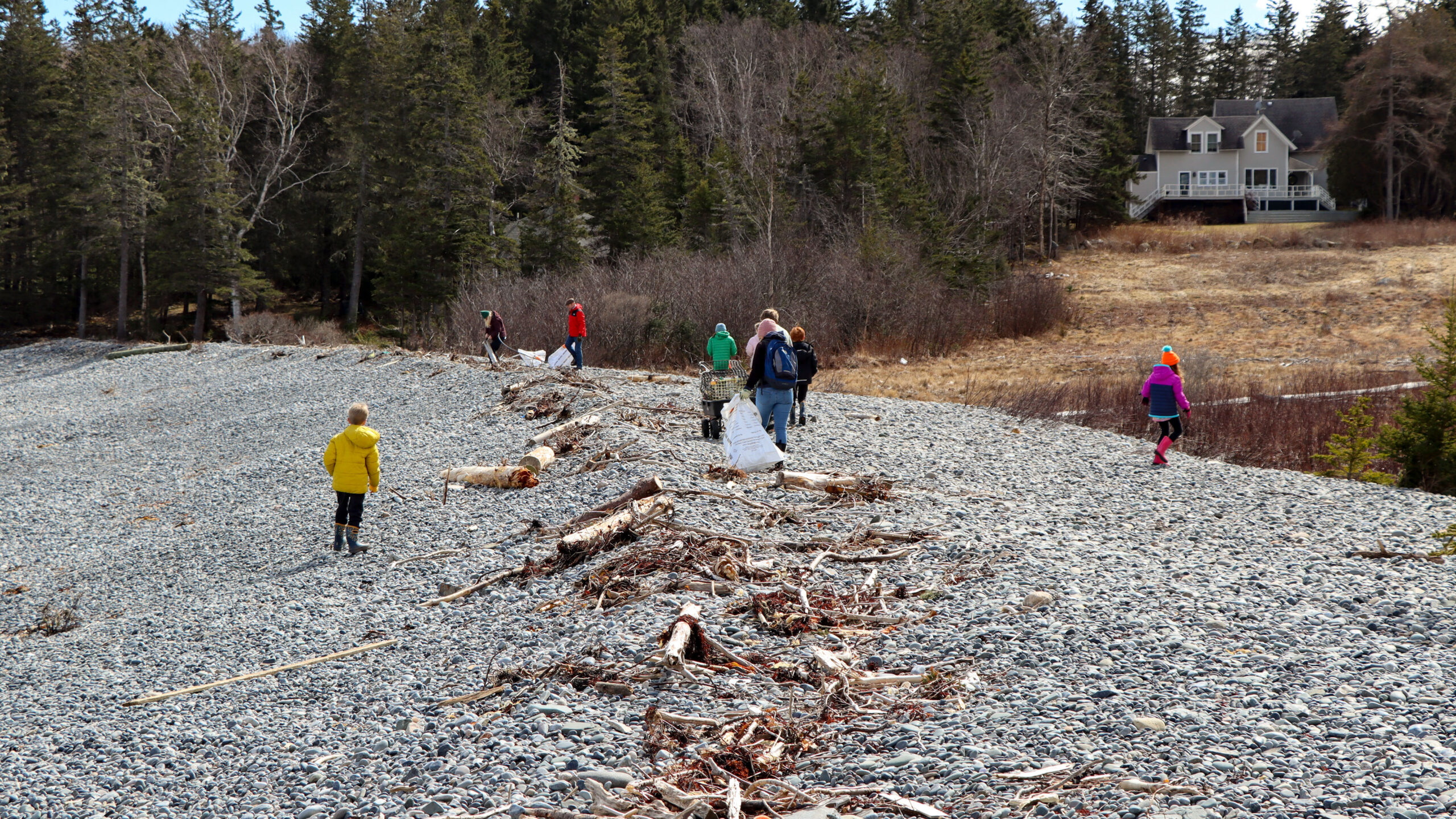
On a small stretch of beach on Islesford, remnants of broken wine bottles, smashed plates, and silverware dotted the sand. During two storms in January, a restaurant situated on the dock had an outbuilding they used for storage wash away. Now, months later, debris is still finding its way to the beaches. While this part of Islesford offers an extreme example of the impact the storm had, no part of the coast or the islands were untouched.
Your gift to the Maine Seacoast Mission makes you part of all we do.
Three days after the January 10 and 13 storms, Sunbeam traveled to Great Cranberry, Matinicus, and Isle au Haut to understand how island communities were impacted. Residents reported damage to personal property, shared community spaces, and the coastline. During the three-day trip, Mission staff collected 20 contractor bags of debris.
After returning home, Mission staff started planning an initiative to help. Housing Improvement Program Director Jennifer Kempthorne, who works with volunteer groups each summer, spearheaded the coordination alongside Director of Island Services Douglas Cornman. Douglas talked with islanders to find out which shared or public areas needed assistance and Jennifer came up with a plan for each day.
Now, on a cold and windy morning in March, a group of volunteers from the Mission and Island Institute boarded the Beal & Bunker mail boat to Islesford. Once there, they got to work around the lobster co-op and boat landing. The impact from the storms was clear to see: the steps leading to businesses on the Islesford Dock had disappeared, and rocks beached themselves onto the yard of the neighboring museum past the Islesford Boatworks.
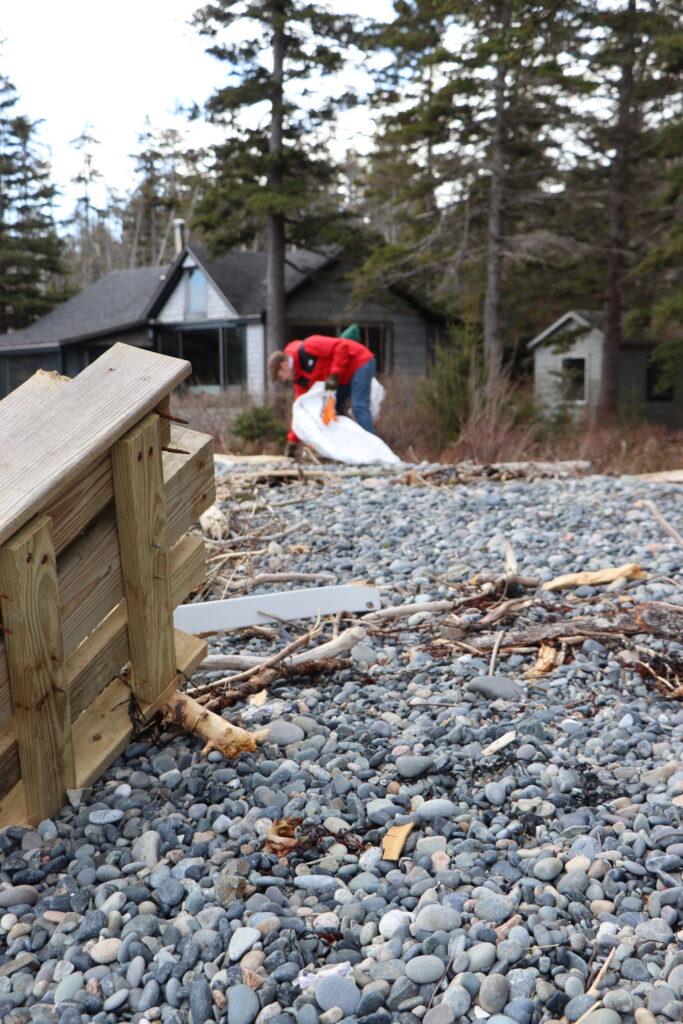
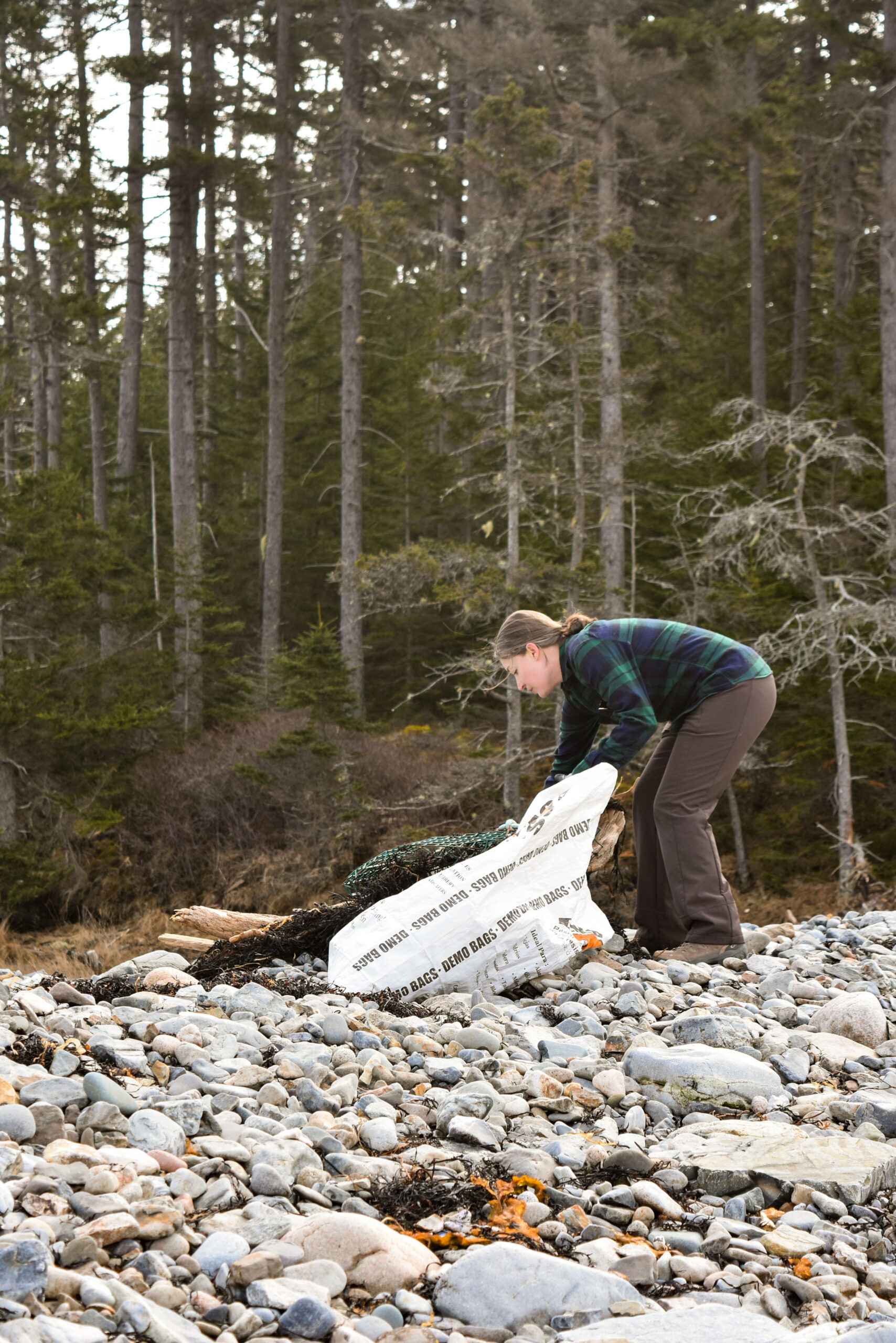
After a morning spent cleaning up the beaches near the docks, volunteers visited the Islesford Congregational Church to see the windows created by author, illustrator, and island resident Ashley Bryan. An important part of this volunteer trip was giving everyone on the trip a chance to learn more about each island and meet with residents. Lunches were open to everyone on the island and schools were invited to attend. On Islesford, Ashley Bryan School students helped volunteers clean up another beach and then the students invited everyone to see their school. They excitedly gave tours, talking about their days and sharing the projects they were working on.
The following day, the contingent boarded the Sunbeam to head to Great Cranberry Island, where they were welcomed by island residents and Phil and Karin Whitney. In typical Maine fashion, the weather turned frequently from rain to snow, but the group persevered. They split into three groups with some working to clean debris with others focusing on cutting up trees which had fallen.
After a morning of cold and hard work, the volunteers headed back to the Sunbeam for lunch. That afternoon, Phil gave everyone a tour of the island before ending at the island’s historical society. Phil, who is also the historical society president, told everyone more about the history of the island.
With snow forecasted for much of the next day, it was decided to cut the trip short and not make the planned trip to Frenchboro the next day. Even with the shorter trip, the impact of the clean-ups was felt on volunteers and residents. Islanders passing during the day thanked everyone for their time and energy, they shared stories, and answered questions. For volunteers, this was a chance for many of them to get a glimpse into the lives the communities the Mission and Island Institute serve.

